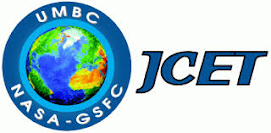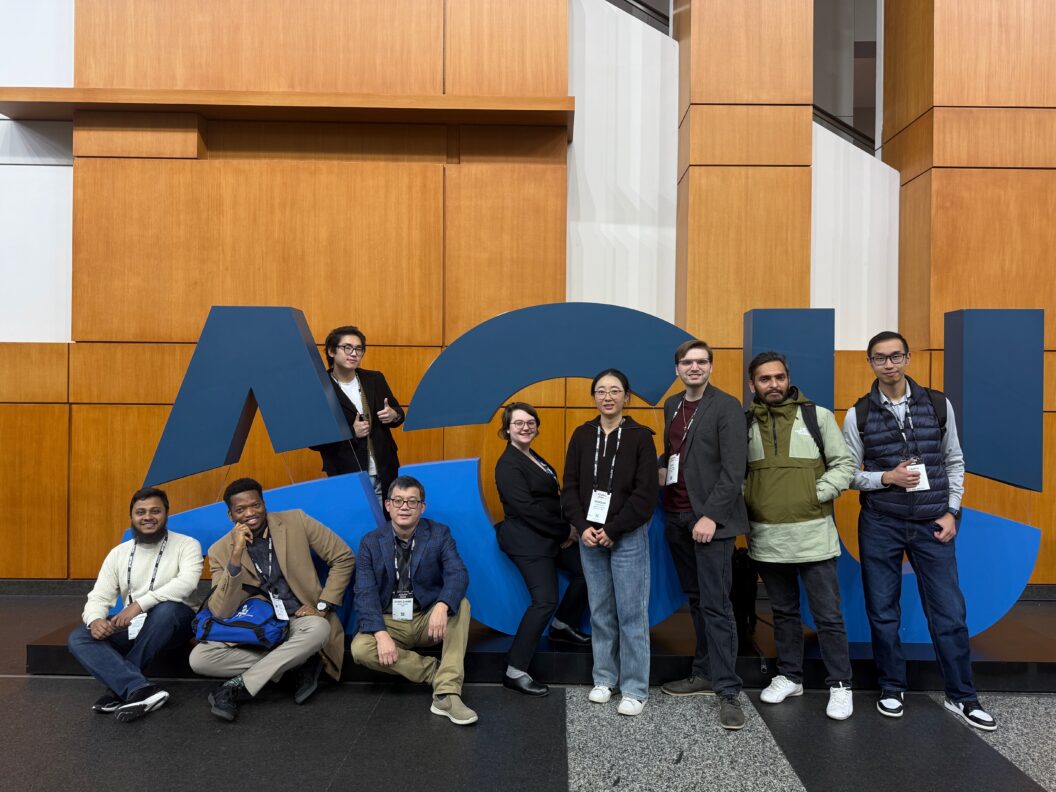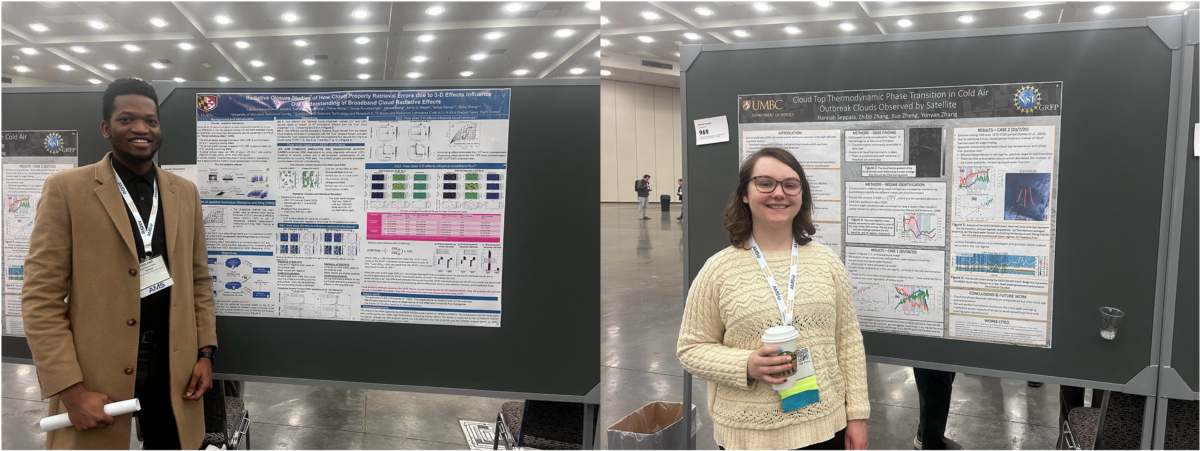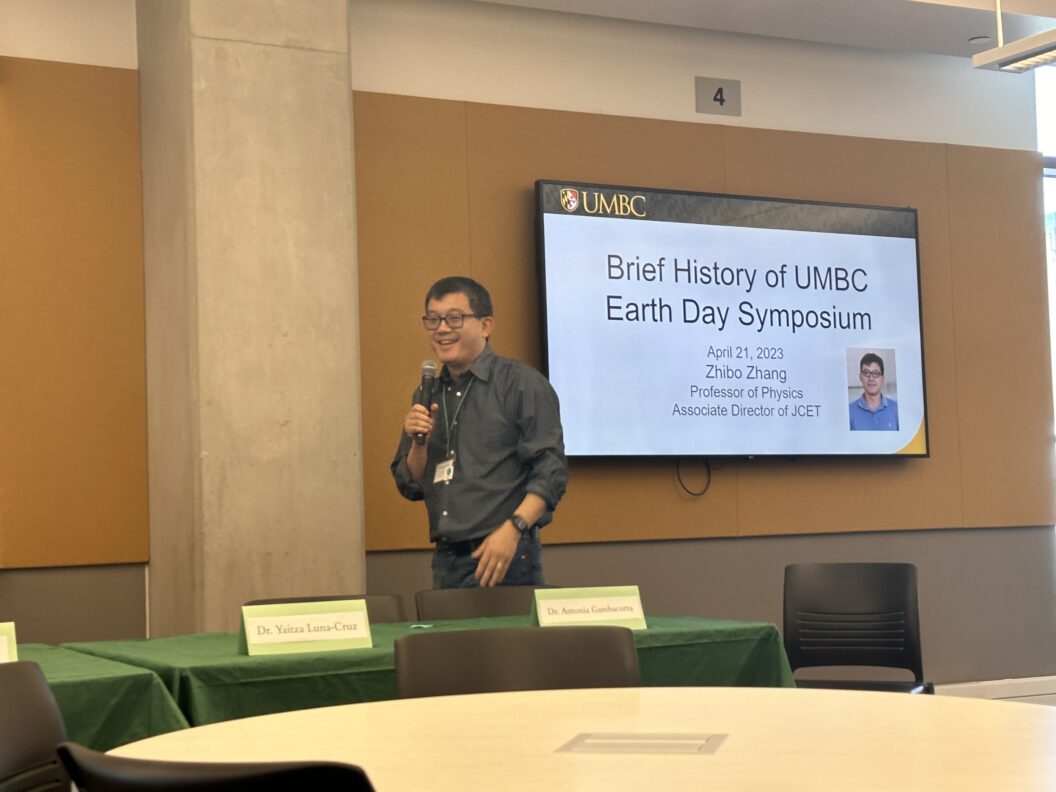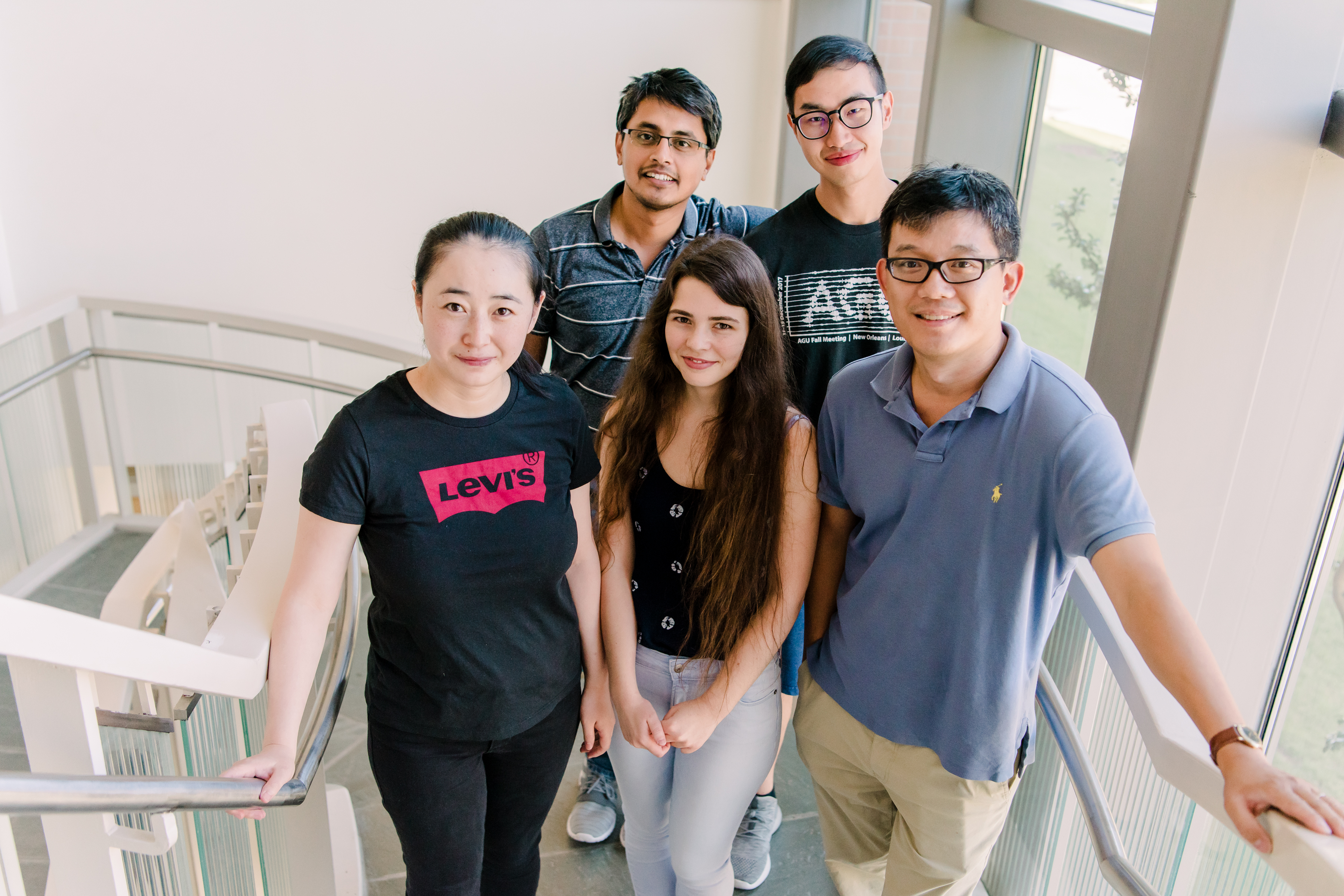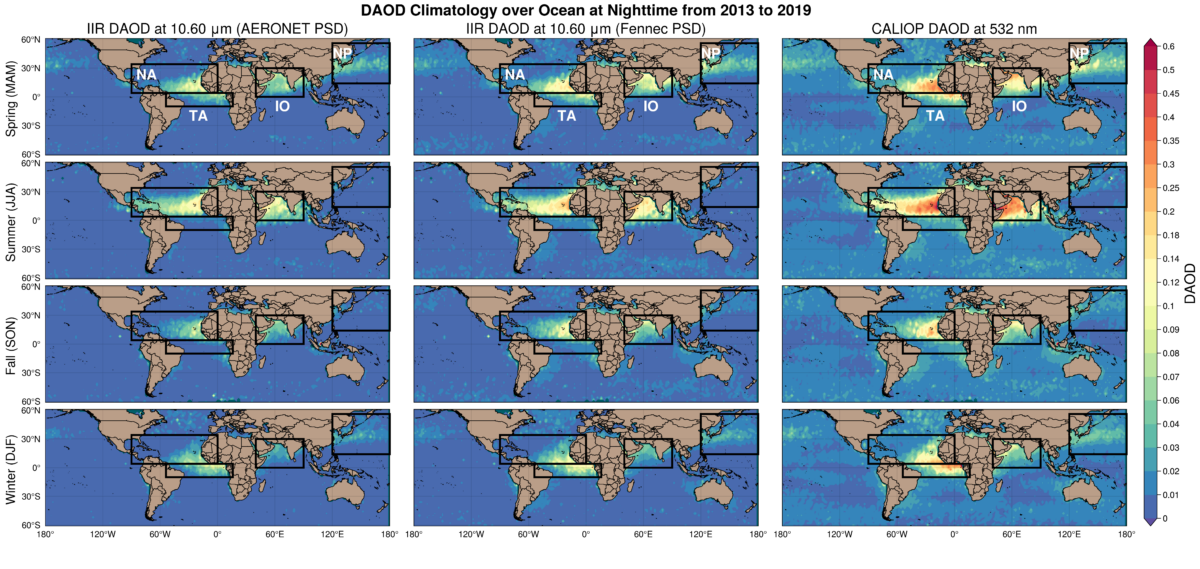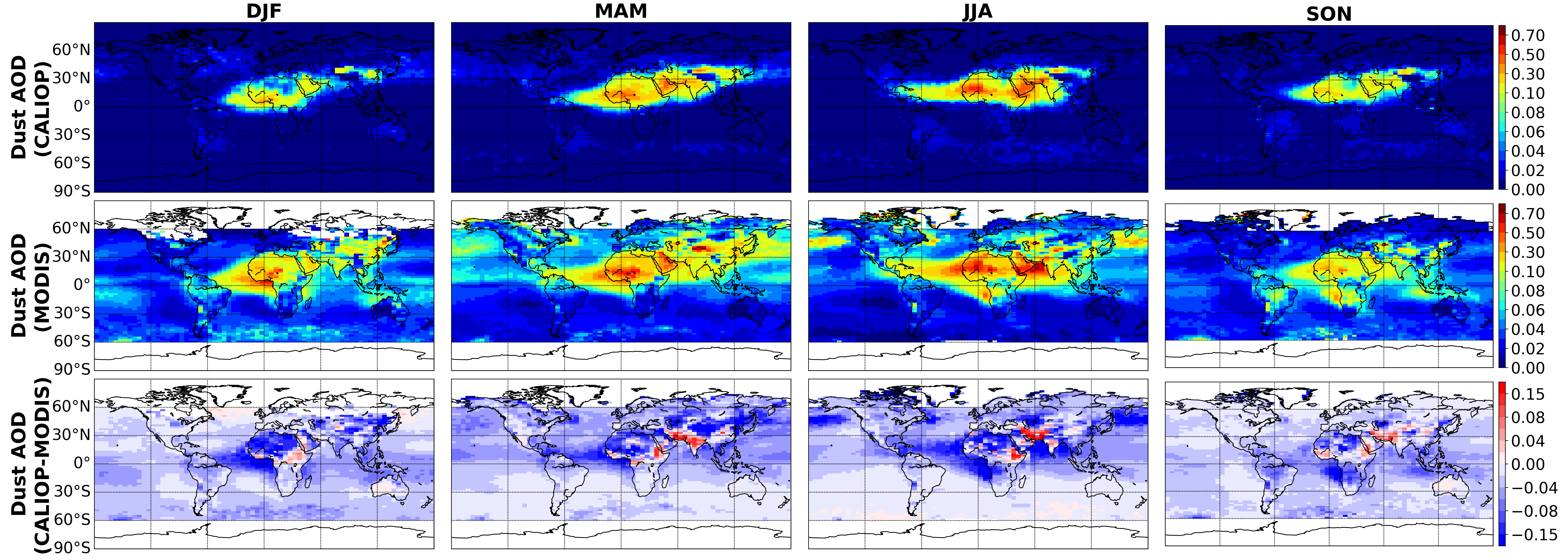Welcome to the home of the Aerosol, Cloud, Radiation-Observation, and Simulation (ACROS) group, led by Dr. Zhibo Zhang at the Physics Department of UMBC. Our research focuses on observing, understanding and describing the interactions between aerosol, cloud, and radiation, and studying the implications of their interactions for global warming, climate change, air quality, and weather. Our research has been supported by grants and funding from NSF, NASA, the Department Of Energy (DOE), and Joint Center for Earth Systems Technology (JCET) of UMBC.
Aerosol and cloud are major modulators of Earth’s radiative energy budget. One branch of our research is to use observations from remote sensing techniques (e.g., NASA’s A-Train and DOE’s ARM) to better understand the microphysical and optical properties of aerosols and clouds, and thereby quantify their roles in Earth’s radiative energy budget.
Aerosol particles, clouds, and radiation can interact with each other in a variety of fascinating ways. A recent research direction of our group is to understand how seasonal smoke aerosols originating from the bio-massing burning activities in African interact with the low-level Marine Boundary Layer clouds and radiation in the Southeast Atlantic region.
We rely on global and regional climate models to analyze the current and predict the future climate. Aerosols and clouds are still not adequately represented in the current climate models, resulting in significant uncertainties in our projection of future climate change due to global warming. Another objective of our research is to use aerosol and cloud observations from satellite and ground-based remote sensing techniques to evaluate and improve aerosol and cloud simulations in climate models.
We are always looking for excellent postdoctoral scholars and students of all levels to join my group. Please see this link for openings and opportunities in our group.
